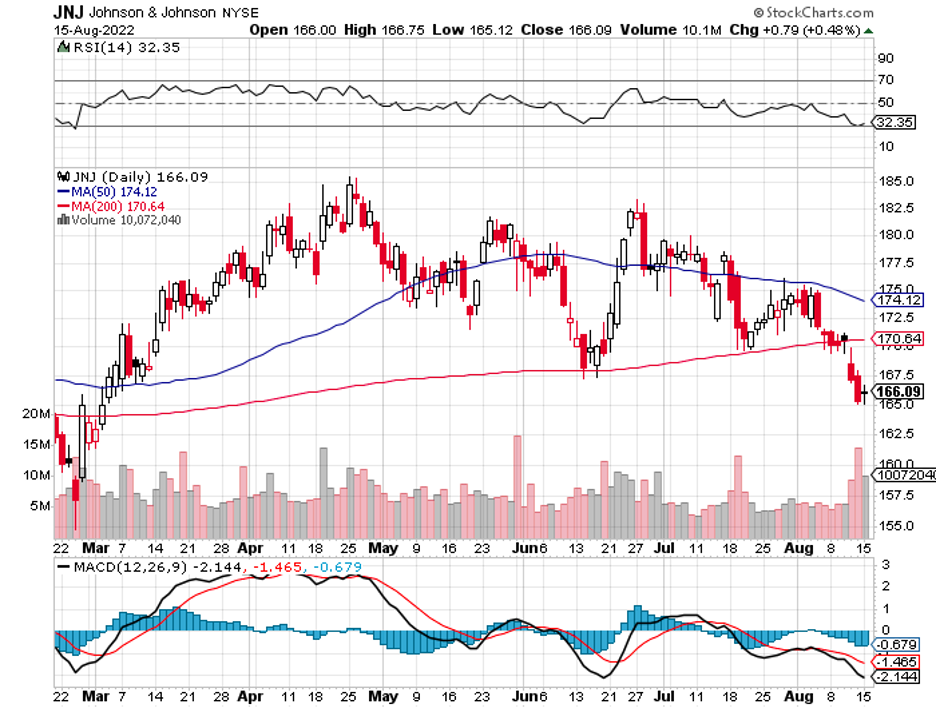A Fail-Safe Healthcare Stock for Patient Investors
Warren Buffett is arguably one of the most celebrated investing minds in history. In the 57 years that the Oracle of Omaha was hailed as the leader of Berkshire, the business’ Class A shares (BRK.A0 grew 3,641,613% through December 31, 2021.
In fact, his company has been outperforming the broader market by leaps and bounds that even if Berkshire’s shares fall 99% tomorrow, it would still be ahead of the S&P 500—an achievement it has been celebrating since 1965.
While there’s a long list of factors behind Buffett’s long-running success, his preference for relatively safe businesses serves as one of the foundations of Berkshire’s superior and stable returns.
One of the companies in Berkshire’s portfolio is Johnson & Johnson (JNJ). Although it comprises only 0.02% of Buffett’s holdings, JNJ represents the steady and long-term holdings the Oracle has been known to chase.
Since August 2012, the company’s trailing-12-month net profit has climbed by 116%, exceeding $18.3 billion. To hit that mark, JNJ creates and markets a slew of products and treatments alongside medical devices and consumer health staples such as Tylenol and Sudafed.
It’s highly probable that JNJ’s stable track record of growth and success in expanding and diversifying its portfolio year after year is what lured Buffett to invest in the company.
JNJ’s operating segments hold a vital role in its growth as well. Although marketing brand-name pharmaceuticals comprise the majority of JNJ’s operating and growth margins, the reality is that brand-name products can only hold on to a finite period of exclusivity in sales.
To counter the issues involving patent cliffs, JNJ has implemented a myriad of tactics. For instance, it can rely on its top-performing medical device segment to help augment the loss of income.
For JNJ, when one door closes, another door or a group of doors tend to open.
Unlike most businesses that attract Buffett, which have wide economic moats, JNJ’s significant competitive edges rely on its sheer size compared to its rivals and the brand recognition attached to most of its products.
Nevertheless, a considerable part of its lineup speaks volumes in terms of highlighting Buffett’s preference for businesses that allow him to generate income without necessitating additional investments in development.
If you really think about it, you’ve likely purchased Tylenol or Listerine mouthwash several times in your life. The formulas have not been modified or changed that much, and neither has JNJ’s unit economics when it comes to manufacturing them.
Another factor that makes JNJ an excellent company is its continuity in operations. Keep in mind that this company has been in business for 136 years, and within that period, it only had 10 CEOs. Possessing continuity in critical leadership roles has guaranteed that strategic goals are constantly met.
On top of these, JNJ is one of the most financially sound—if not the most economically sound—publicly traded companies in the world. It has boosted its base annual dividend consistently over the past 60 years. It is recognized as one of the only two publicly traded companies with the highest credit rating (AAA) awarded by Standard & Poor.
Moreover, JNJ is a thriving healthcare stock.
Healthcare stocks are one of the most stable investments since they are defensive. Regardless of the economy and stock market performance, people will continue to buy prescription medicine, use medical devices, and avail of healthcare services. Therefore, this puts minimal demand on healthcare stocks. We do not stop getting sick or going to hospitals because Wall Street hits a roadblock.
Overall, JNJ is an excellent, safe, and reliable long-term investment. While it has not outperformed the broader market in the past 10 years, the business brings joy to its shareholders by steadily paying and boosting its dividend.
There’s a catch here, though. Buying a stock like JNJ signifies your willingness to hold it for years. Hence, this is a business for patient investors only.

